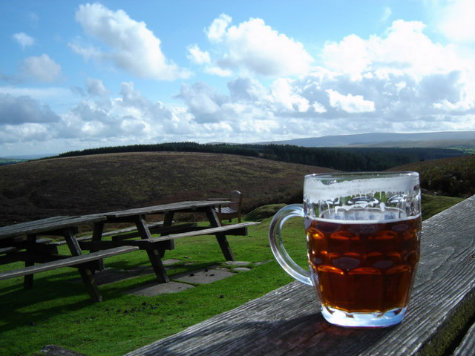This week in Westminster, MPs voted in favour of an amendment that could see the end of the controversial, centuries old pub-tie that forces landlords into only buying beer at above the market rate from the parent brewery.
As a long standing save-the-pub campaigner, I have spoken out on many occasions against the so called beer-tie. The Great British pub is under threat on all sides. Supermarket pricing, the draconian smoking ban, unfair levels of VAT and beer duty are obvious culprits, but for many years pubs have been under threat by the very industry it belongs to.
Pub companies claim that by forcing a tie on their tenants, they are allowing potential landlords to come in and run a pub with very little capital. These tied tenants supposedly get a good deal on their rent and rates but it comes at a cost.
Tenants are forced into sourcing their beer strictly from one supplier, in most cases the brewery that just so happens to own the pub-co. Without being able to choose from the open market for beer, landlords are tied in to paying above the odds for some of the most popular draught beers such as Fosters, Heineken and Guinness to the tune of up to 77 percent above the going rate.
Landlords are left with little option but to pass these costs on to customers by way of charging more for a pint of beer. As pints get more expensive, beer drinkers increasingly look to supermarkets and off-licences, creating a downward spiral of decline for pub turnover.
The life of a pub landlord, especially when the pub is tied to a brewing company is becoming increasingly grim. A study last year by the Campaign for Real Ale (CAMRA) has revealed that a shocking 84 percent of tied landlords earn less than £15,000 a year, a measly sum when you consider that the job is 7 days a week, 365 days a year. 50 percent of tied-pubs where a landlord earns less than £15,000 are busy with turnover in excess of £500,000 per annum. Even more galling is the fact that some 60 percent of tied landlords ‘survive’ on less than £10,000 a year.
These figures show that the pub industry in its current form is unsustainable and many experienced landlords are leaving the industry altogether. Even untied landlords are feeling the pinch with over a third earning less than £15,000.
Pubs are now closing at a rate of 31 per week. In 1982, there were some 67,800 pubs up and down the UK. Last year this figure had plummeted to as low as 48,000, a shocking 29 percent decrease over this period. How long until there are no longer any local community pubs left.
This vote, if it passes through the Lords, will certainly be a game changer for struggling pubs that are tied to their brewery however for the industry as a whole, there is still far more work to be done. All pubs, tied and untied, are struggling.
George Osborne lowered beer tax by a penny at the last budget and he was applauded for it but with an overall increase in the cost of a pint of beer, the chancellor has gained it back through VAT. This year the tax man adds on average 99p to every pint. In 2002 this figure was only 58p.
Successive governments see pubs as a source of tax revenue, but surely they must now come to realise that they are taxing the industry out of existence. A pub on average contributes £80,000 into the local economy. With each pub closing its doors, a local community loses this money forever.
If MPs at Westminster are serious about saving the Great British pub, their next course of action after cutting the beer tie must be to slash the rate of beer duty and consider changes in VAT rules for catering and hospitality industries. Only then will they be able to compete on a level playing field with supermarkets and off-licences.

COMMENTS
Please let us know if you're having issues with commenting.